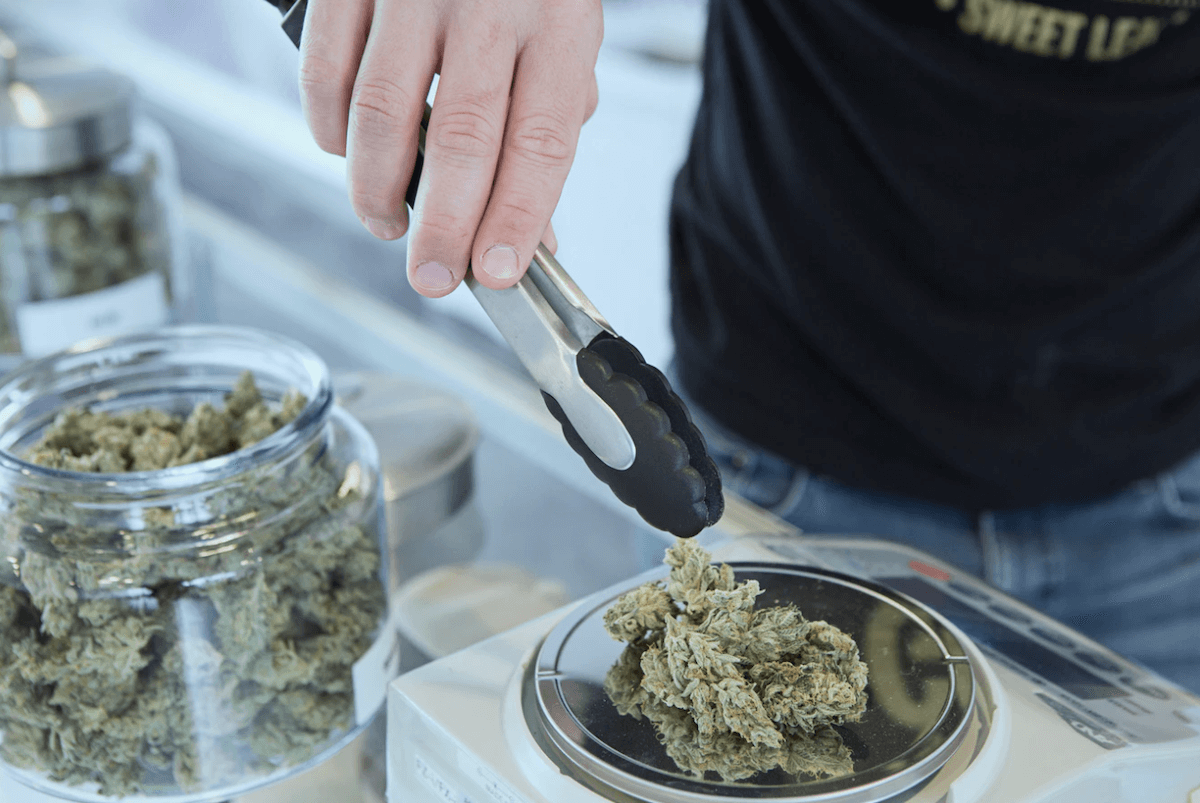
#image_title
#image_title
Two lawmakers prepare to take questions on pot’s hazy road to legalization
Republican Assembly Speaker Robin Vos, of Rochester, and Democratic state Rep. Melissa Sargent, of Madison, are two weeks out from a luncheon in which they will tackle whether Wisconsin lawmakers should legalize medical marijuana — but it may be a fruitless discussion.
Despite 83 percent of Wisconsinites being in favor of legalizing medical marijuana, according to an April 2019 Marquette Law School poll, Republican leaders in the Assembly and state Senate have yet to bring medical marijuana bills to a formal discussion. Just last month, Senate Majority Leader Scott Fitzgerald, of Juneau, quashed such a bill introduced by two Republicans on the same day it was announced.
Sargent supports full legalization of medical as well as recreational pot, but Vos is only in favor of legalizing medical marijuana in a tightly controlled manner. And while Vos has for several years expressed support of medical use, he told the Associated Press last month that “it’s going to take a while.”
“I would argue that Speaker Vos and Sen. Fitzgerald are out of touch with what the people of Wisconsin want us to do,” Sargent said Friday. “People value regulation. This is overwhelmingly what the people of our state want us to do. That is the direction we should at least be considering, or at least be moving toward at this point.”
Vos reiterated to UpNorthNews that he thinks legalization will come at a later date, but also passed some blame of the holdup onto Democratic Gov. Tony Evers.
“I certainly have got a record that shows that I want to do something on this topic,” Vos said. “The challenge that we saw is that Gov. Evers went further, and kind of went all the way to basically legalizing recreational marijuana.”
The governor’s official stance on pot is to legalize medical use and put recreational use to a referendum. His office did not respond Friday to a request for comment on Vos’ statements. Evers last year proposed decriminalizing marijuana possession up to 25 grams and creating an expungement procedure for those previously convicted, but did not propose full recreational legalization.
“Too many people, often persons of color, spend time in our criminal justice system just for possessing small amounts of marijuana. That doesn’t make our communities stronger or safer,” Evers said last year in a statement announcing his decriminalization proposal.
Fitzgerald will likely be out of the state Senate after the November election, as he is running to replace retiring U.S. Rep. Jim Sensenbrenner in the Republican stronghold 5th Congressional District, which Sensenbrenner carried in 2018 with nearly 62 percent of the vote. But even with the probability that Fitzgerald won’t be in state politics after the election, it’s unclear if that will pave the way for more rapid advancement toward legalizing medical marijuana.
“I mean, I think it’s possible,” Vos said. “But I would say it’s really not about any one person, right? It’s not about that I support it, that he does not. It’s not about the fact that Gov. Evers, what I would say kind of ineptly wants this legalization effort, which I really believe hurt our efforts to get medical marijuana.”
Vos said that if medical marijuana was not implemented in a “thoughtful” way, it could be “an open door for recreational marijuana to come to Wisconsin, which I am against.” Fifty-nine percent of state residents support full legalization, the Marquette poll found.
Wisconsin now exists as an island in terms of marijuana legalization. Illinois and Michigan have legalized it for both medical and recreational use, and Minnesota has legalized medical use. In all, 33 states have legalized medical marijuana, according to the National Conference of State Legislatures. Eleven have fully legalized recreational marijuana, and 26 have decriminalized small amounts.
A bill proposed by Sargent as well as 17 other Democratic representatives and five Democratic state senators would make recreational and medicinal use legal. The current legislative session is the fourth time she has introduced it. She said officials from Michigan and Illinois, which have legalized recreational use, told her it’s easier to legalize everything at once, as opposed to legalizing medicinal and then recreational at a later date.
“In Wisconsin, we have a cannabis industry that already exists. It is just not legal,” Sargent said. “Lifting the prohibition and inviting regulation into the state actually provides more safety and security for the people of our communities, including our kids.”
Politics

Biden administration bans noncompete clauses for workers
The Federal Trade Commission (FTC) voted on Tuesday to ban noncompete agreements—those pesky clauses that employers often force their workers to...

Opinion: Trump, GOP fail January 6 truth test
In this op-ed, Milwaukee resident Terry Hansen reflects on the events that took place on January 6, the response from Trump and other GOP members,...
Local News

Readers Poll: Top Bowling Alleys in Wisconsin
Looking for the best bowling in Wisconsin? Look no further! Our readers have spoken in our recent poll, and we have the inside scoop on the top...

8 Wisconsin restaurants Top Chef judges are raving about
Top Chef’s 21st season is all about Wisconsin, and on-screen, it’s already apparent that the judges feel right at home here. But, while filming in...



